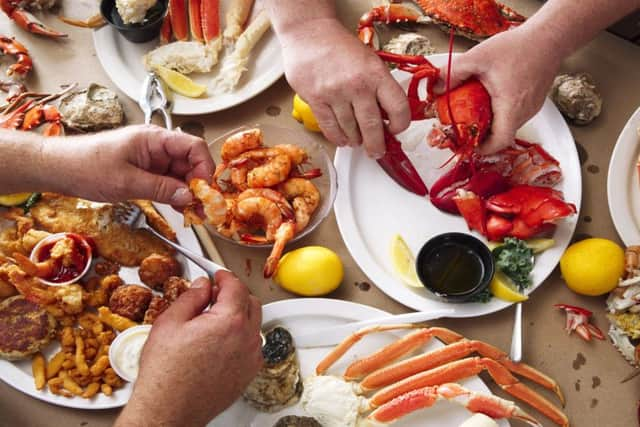Calls for Westminster to protect Scottish seafood in no-deal Brexit
Scotland’s rural secretary Fergus Ewing has written to UK environment secretary Michael Gove to demand assurances that Scottish exports will be safeguarded if Britain leaves the EU without a deal.
He has raised concerns over a certification scheme that will be required to regulate imports and exports under a no-deal scenario.
Advertisement
Hide AdAdvertisement
Hide AdHe warns that potentially catastrophic transport delays and costs of up to £15 million a year could cause Scottish businesses to collapse.


In the letter, sent last week, Mr Ewing said: “I have highlighted my concerns on numerous occasions about the impact of a no-deal exit for Scotland’s seafood industry.
“The situation facing us is starker than before, given that several candidates for the forthcoming Conservative leadership contest have raised the prospect that the UK could leave the EU without a deal.
“I am therefore writing to seek your commitment that you will do all you can to prevent the system for importing and exporting food from imploding.”
Mr Ewing is suggesting a dedicated national export hub could be set up in Scotland to minimise disruption associated with the requirement for Export Health Certificates (EHCs), which could have serious implications for perishable goods such as fish and shellfish.
He is asking for confirmation from Westminster that such a base could be named as the ‘place of origin’ for goods from around Scotland and that only a single certificate would be needed in cases where products of the same type were going to the same destination.
“If consolidation of commodities is not possible, then the costs of providing an EHC for every customer order would seriously affect the viability of smaller seafood businesses,” he wrote.
Industry leaders, who have been working with the Scottish Government to find a solution, echoed the calls.
Advertisement
Hide AdAdvertisement
Hide AdHamish Macdonell, director of the Scottish Salmon Producers’ Organisation, said: “The Scottish salmon sector has warned repeatedly of the potential difficulties a no-deal Brexit would cause, particularly as it would bring with it the prospect of fish exports to the EU needing export health certificates, which they don’t at the moment.”
Food exports to Europe – mostly fish and seafood – are worth £1.1 billion to the Scottish economy each year.
A spokesman for the UK’s Department for Environment, Food and Rural Affairs (Defra) said: “As we leave the EU we will become an independent coastal state with control over our waters.
“We are continuing to plan for all scenarios, including a no-deal exit. As part of this, we are in regular contact with representatives in the Scottish Government to work to minimise disruption and ensure the import and export of seafood can continue as smoothly as possible.”
He said Defra representatives are also in continued dialogue with the fishing industry, and have published guidance on operational changes that businesses must prepare for to remain compliant with EU regulations and enable continued trade flows under a no-deal exit.